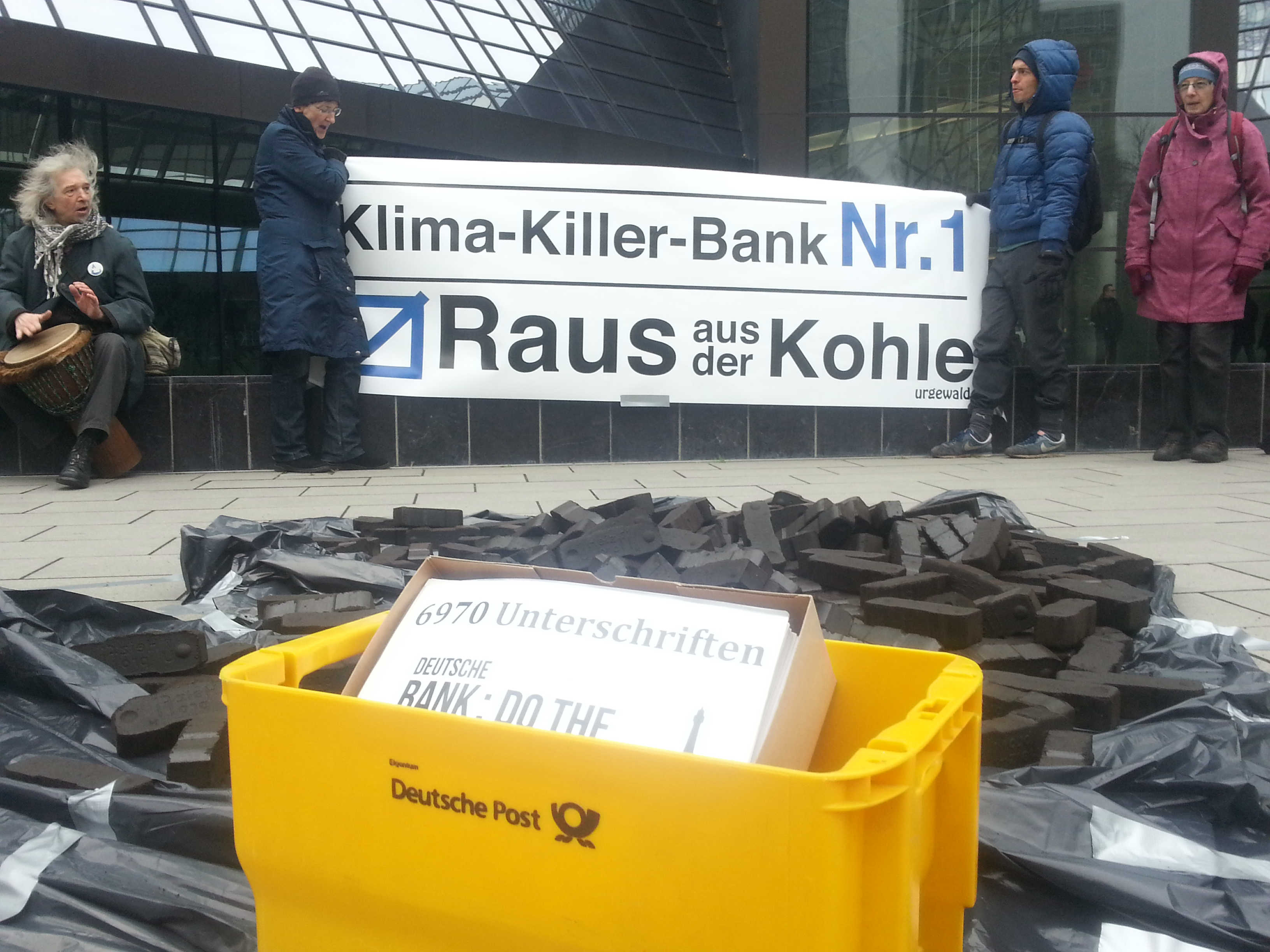Money and Responsibility
20.04.2016
Divestment because of ethical reasons
– an idea that emerged with the protests against the apartheid regime in the 1960s. The general thought behind it: to withdraw invested money from business sectors, companies or countries which act unethically and urge other investors to join in.
Image by urgewald
It may seem necessary because monetary investments of private and public money, in most cases, do not have ethical restrictions that would define in what it is problematic to invest and in what it is not.
Investments are usually solely debated in terms of two factors: risk and return on investment. This seems normal but is actually highly contradictory. Take for example a country like Germany that is phasing out of nuclear power due to certain ethical and security reasons. But there are no restrictions for banks or private investors not to make constructions of such power plants possible through their investments or not to invest in utility companies that owe a certain amount of their revenue to the nuclear power generation. And this field is even one of the debatable ones; the idea applies to tobacco production, environmental destruction, child labour, delicts against human rights, weapon production and more. There is an inconsistency between displayed ideals and actions taken as it is known that all major banks have investments in at least some of these mentioned fields.
Also, there are no restrictions set for the enormous amounts of money that are held by public pension funds; money that is meant to help sustain a dignified future for working citizens. It is (at least potentially, in most cases definitely) invested in companies that do businesses which contradict that sustainable long term perspective. The list of such businesses is long, depending on the criteria. Responsibility for the world we live in does not end with sustainable consumption, omitting air-planes and purchasing green energy but needs to reach all resorts at some point in order to be extensive.
If one wants to live the values that most people would agree on, one has to ask the question what the bank we bring our money to use it for. In Germany, there are only few alternatives that have restrictions that consider all the aforementioned topics, the so called alternative banks. It is an illusion to think that Sparkassen, Volksbanken or Kirchenbanken are free from the accusation of making “dirty profits”, although there are huge differences between them that do not allow generalizations.


